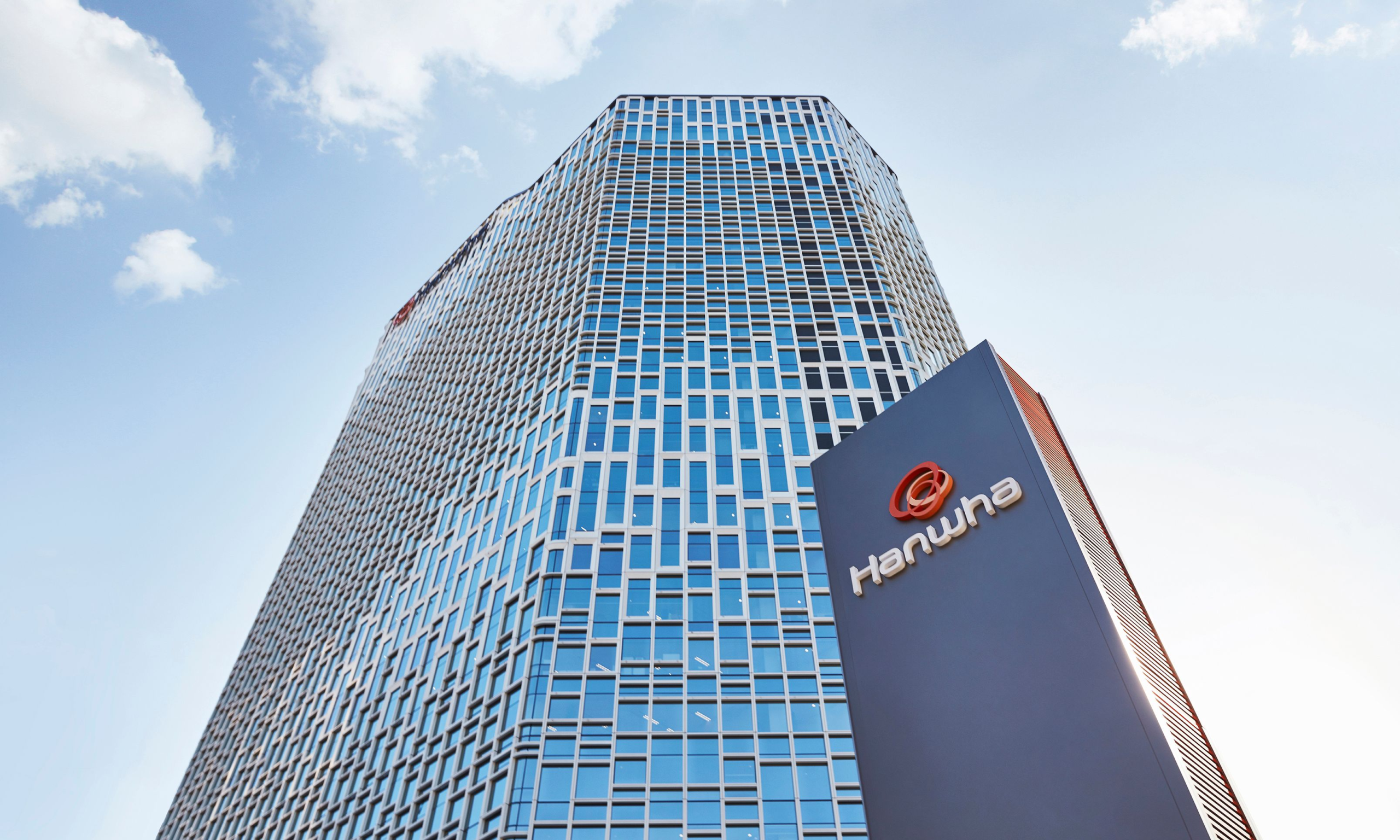Hanwha is one of South Korea's largest conglomerates
© Hanwha
Hanwha, the main partner of the Centre Pompidou’s forthcoming museum in Seoul, due to open in 2025, has come under fire for its links to the Israel Defence Forces (IDF) via the Israeli arms manufacturer Elbit Systems. The Hanwha Foundation for Culture, in whose headquarters the museum will sit, last year signed an agreement with the Centre Pompidou enabling it to operate the museum until 2029.
The $56.7bn Hanwha Group is one of South Korea’s chaebols: large, family-owned conglomerates with diversified business interests. Among the various industries it is invested in are weapons manufacturing and defence systems, through its subsidiary Hanwha Aerospace. In 2015 the Hanwha Group, which was founded in 1952 as the Korea Explosives Company, significantly expanded its defence business with the purchase of two Samsung affiliates.
Hanwha Aerospace’s position as South Korea’s leading arms manufacturer has led it to be widely termed “the Lockheed Martin of Asia” by media outlets including Time Magazine, which noted that due to "ongoing global geopolitical crises", the valuation of Hanwha Aerospace jumped 69% in 2023, to a $7.8bn market value.
In 2021 Hanwha Systems, one of Hanwha Aerospace’s subsidiaries, signed partnership deals with Israeli firm Elbit Systems and Elta Systems, a subsidiary of Israel Aerospace Industries, to push for its export of an advanced radar system and cooperation in aviation technologies.
Opposition to the Elbit deal was central to a protest that took place on 19 January in front of the Defence Acquisition Programme Administration office in the South Korean city of Daejeon, demanding the nation stop arming Israel. Members of South Korea’s four progressive parties—Justice, Progressive, Labour and Green—were reportedly present at the rally.
In February, Elbit was awarded a $600m sub-contract through Hanwha Defence Australia to supply the Australian Army with land infantry vehicles. This deal, ratified by the ruling Labor Party, caused widespread concern in Australia, and led the country’s Green Party to release a statement voicing concern over the contract: “Australia was required to consent to the sub-contract with Elbit and the government engaged closely on the contract […]. Elbit is currently making record profits from supplying weapons to the genocide [in Gaza].”
Elbit Systems, one of Israel’s largest defence manufacturer, supplies hundreds of products to Israel's Defence Ministry, including unmanned aerial vehicles, artillery, munitions and electronic warfare systems, according to Reuters. The company’s central role in the Israeli occupation of Palestine has drawn criticism from pro-Palestine and anti-war groups for years, which has only intensified following the 7 October 2023 attacks in Israel, in which Hamas killed 1,200 people and took a further 253 hostage, according to Israeli sources, and has led to Israel killing more than 40,000 people in Gaza, according to the local health ministry.
In March, Reuters reported that Elbit’s revenue rose 8% to $6bn. Its chief executive Bezhalel Machlis told the news agency that "it's crucial to support the IDF. The war is not positive but we received a lot of orders and we expect to get more”. He said that sales to Israel were about $1.2bn but will rise as the government has approved a budget to boost defence spending by $5.5bn per year.
The Centre Pompidou holds in its collection work by dozens of artists who have signed open letters calling for a ceasefire and boycotts of Israel, including Nan Goldin and Ali Cherri.

